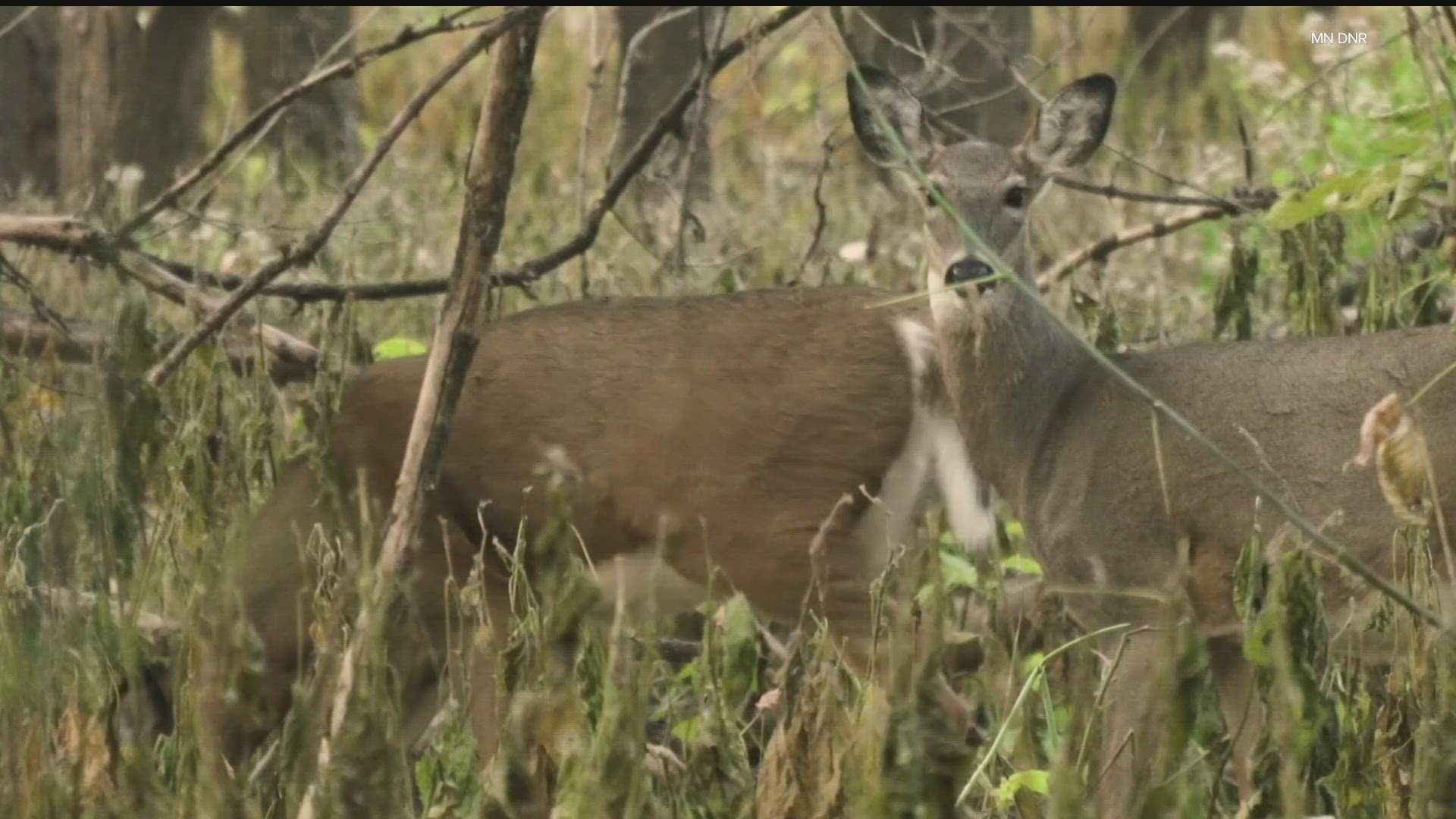MINNEAPOLIS — Firearms deer hunting season is just around the corner, and for many hunters, a big part of hunting is eating the venison from their deer.
However, new research from the University of Minnesota suggests Chronic Wasting Disease (CWD) could potentially be spread to other venison if butchering equipment like knives, cutting boards, and meat grinders aren’t cleaned properly.
"We were able to show that yes, when CWD-positive venison is processed with this equipment, we can recover prions from that equipment,” University of Minnesota Professor Tiffany Wolf said.
Professor Wolf says it's possible that contaminated equipment could contaminate other venison down the line, but she says certain cleaners like diluted bleach will kill the CWD so it can't spread.
"Our plan is to work with venison processors to get them this information,” Professor Wolf said.
Local butcher Gary is worried this research study could lead to stricter rules and regulations down the road.
He didn’t want to share his full identity publicly over concerns about retaliation from state lawmakers and state regulators, but he felt it was important to share the viewpoint of small locally-owned butcher shops.
“CWD has never been found in humans and so further regulation wouldn’t be necessary and it would hurt small business owners,” Gary said. “If down the line there’s a requirement that we need to clean our equipment after every single deer or something like that, it would ruin our business.”
Right now, Gary says he and his coworkers are processing about 1,000 deer a season. He says cleaning their equipment after every deer would likely slow down their capacity to less than 200 deer, because he says the cleaning process would take 3-4 additional hours per deer.
“We would have to raise our prices and it would cost the hunters more than $500 to process a deer. The average deer yields around 50 pounds of meat. That’s ten dollars a pound just for processing and for ten dollars you can buy some pretty good meat for that price,” Gary explained.
He’s worried many hunters will see that processing price and simply decide to stop hunting deer for the meat altogether and then state agencies like the Minnesota DNR will have fewer hunters in the field to provide them with data and samples for CWD.
“If we don’t have hunters out there in the woods, we’re going to have another problem, who are they going to have manage these deer herds?” Gary said.
At this time, researchers say they aren’t making any recommendations when it comes to restrictions and new rules on meat processors. They feel more research is needed and the decision ultimately falls on state regulators like the Minnesota Department of Agriculture.
"It's so important that we do everything we can to maintain that tradition of hunting, to maintain people's confidence in what they are consuming,” University of Minnesota Professor Peter Larsen said.
It's important to note that the CDC says there is no evidence that CWD has ever been transmitted to a human. The Department of Agriculture says the disease was first discovered in the 1960's. According to the University of Minnesota, CWD has been found in 30 states and four Canadian provinces.
Watch more local news:
Watch the latest local news from the Twin Cities and across Minnesota in our YouTube playlist:

